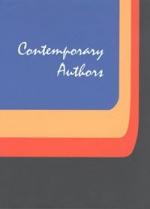|
This section contains 692 words (approx. 3 pages at 300 words per page) |

|
SOURCE: “Phallic Woman,” in New Statesman, September 24, 1982, p. 28.
In the following review of The Rape of Clarissa, Thurley concludes that the work is “a vigorous and sometimes brilliant book” marred by Eagleton's “dogmatic intensity.”
We can read Clarissa again, says Terry Eagleton, thanks to feminism and post-structuralism. It is now relevant, he argues [in The Rape of Clarissa], because it dramatises the scandal of rape in patriarchal society and opens up the possibility of a fully feminised social order. Eagleton assumes fixed meanings for masculine and feminine throughout. Women are tender, gentle and considerate (though also narcissistic in a way he approves of); men are brutal, rapacious and domineering.
Aristocracy is treated as historically masculine in contrast to the (feminine) bourgeoisie: bourgeois inwardness and kindness replaced aristocratic militancy in the 18th century. Lovelace is therefore an outdated Restoration rake, brutal and cynical yet also pathetic—an infantile sadist...
|
This section contains 692 words (approx. 3 pages at 300 words per page) |

|


